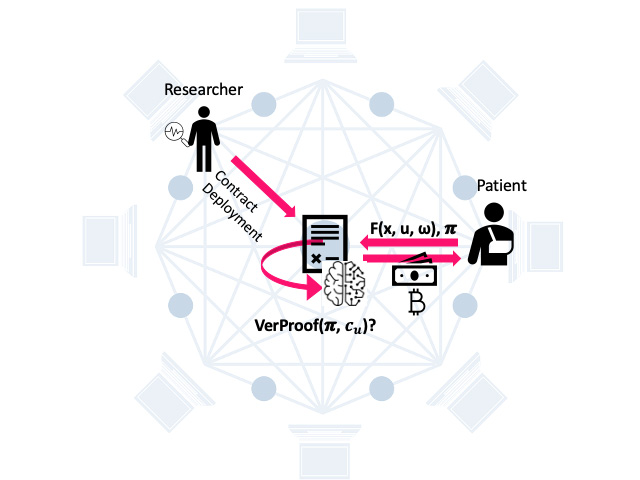Enabling healthcare researchers to utilize crowdsourcing

Shadan Ghaffaripour
At the vanguard of healthcare research, many promising new methods rely on large-scale access to patient data. Given the ethical, regulatory, organizational and technical barriers associated with this sort of research, there is a pressing need for software platforms that address privacy and accuracy concerns. To date, a lack of such solutions has meant healthcare researchers have faced a degree of data scarcity.
A desire to address this problem motivated the research led by Shadan Ghaffaripour, a doctoral candidate in Ryerson’s Department of Computer Science.
“Utilizing the infrastructure that blockchain provides, our platform enables researchers to solicit contributions to a well-defined research study from a large crowd of volunteers,” says Ghaffaripour. “Our method enables what is effectively a one-on-one collaboration between researchers and patients who would like to volunteer to participate in a study.”
Ghaffaripour’s research findings were presented at the 2020 IEEE International Conference on Systems, Man, and Cybernetics (SMC) in a paper titled “A decentralized, privacy-preserving and crowdsourcing-based approach to medical research,” (external link) which she co-authored with her supervisor, Dr. Ali Miri.
“Establishing mutual trust between participants and researchers is pivotal,” says Ghaffaripour. “With crowdsourcing technology, the main challenge is providing confidentiality assurance to the public while assuring researchers of the veracity of patient contributions.”
To achieve this, the pair employed a cryptographic primitive called Zero-knowledge Argument of Knowledge (zk-SNARK), which is a form of zero-knowledge proof. These protocols can verify a statement without conveying any information apart from the fact that the statement is true. This allows participants to make contributions without exposing their privacy-sensitive health data while enabling researchers to efficiently verify the validity of contributions.

Transaction flow of the proposed blockchain-based crowdsourcing platform.
This contribution is novel in the field of privacy-preserving computation research. “Our main contribution is leveraging specialized cryptographic tools (zero-knowledge proofs) and blockchain technology for medical research purposes,” says Ghaffaripour. “To the best of our knowledge, this has not been done before.”
The application also takes into account that researchers often incentivize participants with a monetary reward. It incorporates a blockchain method known as “smart contracts” that ensures a fair reciprocal exchange of data for reward without the need for involvement of an intermediary.
This new method facilitates data-driven research, expedites the process of finding and accessing data, and accelerates machine learning of a research model through access to high-quality data. From a patient’s point of view, the model offers necessary transparency to build trust in the system and incentivizes study participation while not compromising privacy.
Together, these benefits achieve a more fundamental objective. “Ultimately, our goal is to accelerate the discovery of new treatments by increasing the number of research studies underway in any particular healthcare field,” says Ghaffaripour.
Going forward, Ghaffaripour and Miri will explore further applications of this research to verifiable machine-learning models that offer medical diagnostic services designed around mutual privacy protection mechanisms.